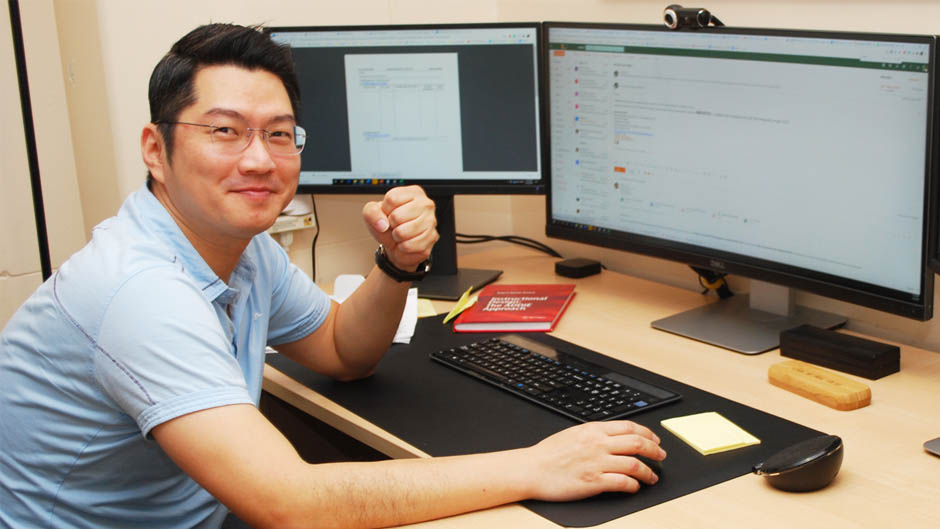“Motivation is one of the most important factors for successful learning, but student self-assessments can change dramatically from moment to moment during the school day,” he said.
Instead of measuring motivation by paper-based instruments, Kim has developed an artificial intelligence (AI) algorithm for detecting student’s motivation based on facial expressions and emotions. “I collected more than 200 students’ data about facial expression and motivation, and developed AI model identifying the unique patterns between two datasets with an accuracy rate of over 95 percent,” he said.
With funding from a private foundation, Kim is now validating the AI motivation indicator system in a two large-scale schools located in Miami involving more than 2,000 students in grades K-12. “The AI system can identify at-risk students with lower motivation and send real-time alerts to the teacher,” he said. “It can also determine when everyone in the class has a low motivational level, indicating a need to make the lesson more engaging for students”
Furthermore, Kim has focused on developing AI-based learning support systems for teachers who find it difficult to provide individualized instruction in a typical classroom of 25 to 30 students. His project is to design and evaluate an innovative learning technology to assess students’ multimodal status in cognition, motivation, and emotion, which drives formative feedback and learning aids to help students develop expository science argumentation skills.
Since joining the school in 2017, Kim has been active in a wide range of technology-related learning initiatives including educational game, robots, and adaptive online learning environment. With support from a Provost Research Award Grant, he is collaborating with faculty in the College of Engineering on using augmented reality (AR) headsets from Magic Leap to attract and engage undergraduate students. “The mechanics concepts are often abstract, especially those that require students to make the connection between an analytical calculation and its corresponding 3D physical representation,” said Kim. “The real and tangible 3D environments facilitated by AR technology can improve students’ understanding of contents.”
Kim is also working with colleagues at several U.S. institutions to develop automating meta-analysis tool that can search for published studies across multiple databases, exclude the studies based on the criteria, and calculate the effect size. “A meta-analysis that normally might take one to three years can be done by this automating system in just a few hours,” Kim said. “It’s a cost-efficient approach that allows us to use our academic skills more effectively.”
On a national level, Kim is a leader in the American Educational Research Association’s special interest group on problem-based education. This is an emerging instructional strategy that presents students with opportunities to learn from real-world issues, supported by AR, VR and other tools. “Rather than deliver information directly to students, the teacher becomes a facilitator, observing and helping students when issues arise,” Kim said.
A native of South Korea, Kim earned his bachelor’s and master’s degrees from Yonsei University, where he was an instructional designer developing more than 30 online adult education classes. He earned his doctorate at Utah State University, receiving the Ph.D. Researcher and Outstanding Graduate of the Year awards.
Through the years, Kim has published many studies in top-tier academic journals and has presented numerous papers on instructional technology and learning sciences at national and international conferences.
“As a junior faculty member, I appreciate the great support from our dean and chair in my research and teaching,” said Kim. “Our school is a national leader in instructional technology and I am glad to contribute to advancing our program.”
Professor Nam Ju Kim: Developing Powerful Technology Tools for Learning

